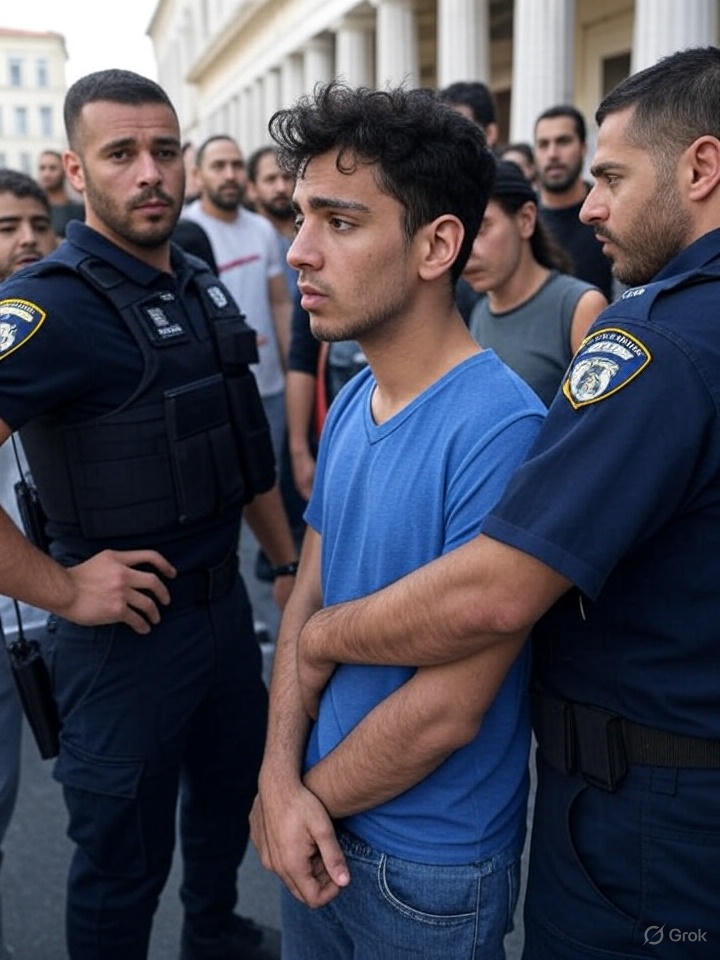Greek judicial authorities have charged two Israeli tourists, a brother and sister, with war crimes following an altercation in Athens where they were assaulted by a group wielding flagpoles. The incident unfolded near a protest site, prompting police intervention that resulted in the siblings’ detention. The charges stem from the individuals’ prior mandatory military service in Israel, despite one having been discharged eight years earlier due to injuries. Prosecutors proceeded based on legal interpretations linking past service to international obligations, leading to their court appearance where the case was formally presented. The courtroom proceedings drew a crowd of protesters who voiced strong opinions, creating a charged atmosphere that included vocal exchanges directed at the defendants and their legal representation. Security personnel maintained order throughout, ensuring the session continued without interruption. The defense highlighted the victims’ status as tourists on vacation, emphasizing the unprovoked nature of the initial assault and the irrelevance of historical service records to the events. Judicial officials reviewed evidence including witness accounts and medical reports confirming injuries sustained by the Israelis, such as bruises and contusions from the flagpoles. Outcomes from the hearing include the release of the siblings on bail pending further investigation, allowing them to remain in Greece under supervision while preparations for trial advance. This decision balances ongoing inquiries with humanitarian considerations for the individuals. The case has prompted reviews of protocols for handling international visitors involved in public disturbances, with authorities enhancing training for officers on de-escalation and rights protections. Local tourism boards have reaffirmed commitments to visitor safety, implementing additional patrols in high-traffic areas to support confidence among travelers. Broader implications involve strengthened diplomatic channels between Greece and Israel, facilitating discussions on consular access and mutual legal assistance. These engagements have already yielded agreements for expedited information sharing in similar future incidents, promoting efficient resolutions. Community organizations in Athens have initiated dialogue forums to address tensions arising from global events, drawing participation from diverse groups to foster understanding and prevent escalations. These forums have enrolled hundreds, with initial sessions yielding constructive exchanges on coexistence and respect for differing viewpoints. Law enforcement responses have incorporated lessons from the event, such as improved coordination between patrol units and event monitors, resulting in smoother management of subsequent gatherings. Data from municipal records indicate a stabilization in public order metrics, with fewer reported disturbances in monitored zones. The judiciary’s approach underscores adherence to international standards, ensuring thorough examinations of all factors in charging decisions. Support services for affected parties have expanded, including access to counseling for trauma recovery and legal aid expansions for foreign nationals. These resources, coordinated through embassies, have assisted dozens in navigating local systems effectively. Educational outreach in schools and universities now includes modules on conflict resolution and cultural sensitivity, equipping youth with tools for positive interactions in multicultural settings. The incident has also influenced policy on protest regulations, with proposals for clearer guidelines on assembly zones to minimize overlaps with tourist paths. Legislative committees are evaluating these, aiming for implementations that uphold free expression while safeguarding public spaces. International observers have noted the transparency of the process, commending the balance struck between accountability and fairness. In parallel, tourism recovery efforts highlight Greece’s appeal, with campaigns promoting safe exploration of historical sites and coastal areas. Visitor numbers have rebounded, supported by enhanced security assurances that contribute to economic vitality in hospitality sectors. The case exemplifies the judicial system’s capacity to address complex matters methodically, reinforcing institutional credibility. Overall, the proceedings advance equitable justice, enabling all parties to engage constructively. Continued monitoring ensures adaptive measures, positioning communities for harmonious progress amid diverse influences.
www.34news.online
www.34news.online

